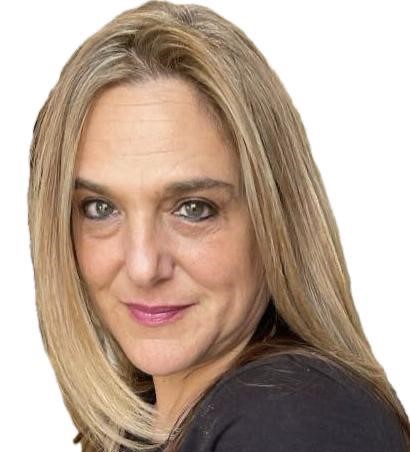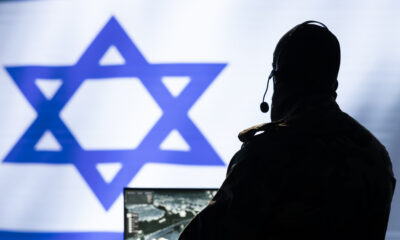
Community

Unthinkable sorrow: SA community reels and rallies
In the realm of trauma psychology, I’ve often witnessed the capacity of the indomitable human spirit to weather even the darkest storms. Today, I write not only as a counselling psychologist but as a member of the South African Jewish community. We find ourselves on a journey through an unfathomable nightmare that unfolded on 7 October 2023.
In the wake of the most horrifying events to befall the Jewish people – the massacre of 1 400 Israelis, wounding of 3 500, and abduction into Gaza of 222 people – the psychological scars run deep.
The horrifying events unfolded almost before our eyes in real-time news and social media projected the horrors of this massacre even further. The shock has been felt by every Jew around the world. The 7 October events shattered our basic assumption of safety and security in the state of Israel.
As the South African Jewish community is so closely connected to Israel, with most of us having friends and family there, the shockwaves are ripping through us as a community.
This heinous attack was sudden, unexpected, and out of the range of normal human experience, threatening our basic assumptions of safety and security. People died and the lives of many more hang in the balance. As humans, in an effort to survive, we respond accordingly.
When we experience trauma, our system goes into survival mode in order to try and cope and make sense of the experience.
As the news of the attack began unfolding, many of us were glued to social media and television to keep informed of what was going on in Israel in an attempt to make some kind of sense of the chaos we saw unfolding.
Disbelief and shock set in, we began to feel scared and sad. As more and more information about the horror of the atrocities suffered become apparent, we either froze or were spurred into action.
This is consistent and appropriate behaviour in the face of a trauma, where our body’s natural flight-or-freeze response is engaged, and our systems either shut down or become ready to fight.
As we’re out of Israel, most of us in the community feel a desperate need to help in any way that we can. However, the fact that we’re not physically in Israel leads to feelings of helplessness and a sense of being out of control. As we seek to regain equilibrium and a sense of control, we attempt to pick up the shattered pieces.
Everyone’s response to trauma is different.
We cannot forget that as a Jewish people, we have faced these kinds of atrocities as recently as World War II, when many in our grandparents’ era fell victim to the Nazis.
We cannot underestimate the impact of the intergenerational trauma we carry as a community. An attack such as the one that occurred on 7 October, when we witnessed our people treated like they were by the Nazis, triggers traumatic memories in each of us.
The idea of such inhumane atrocities happening again to the Jewish people is something we don’t have a frame of reference to deal with. We’ve always felt safe in the knowledge that the existence of the state of Israel is there to protect all Jews from such a thing happening again. The strength of the promise of our slogan “never again” is shattered.
With the shattering of this illusion, we’re left vulnerable and exposed.
Our community has been gripped by acute stress, and the scars are deeply personal and poignant. These include:
- Anxiety: Constant gnawing worry about the safety and well-being of our loved ones in Israel and concerns about our security at home;
- Helplessness: The profound feeling that we’re powerless to alter the course of events, a sense of being unable to change the situation;
- Hyperarousal: A heightened state of vigilance, in which every news alert or unexpected noise feels like a fresh emotional wound;
- Flashbacks: Intrusive memories of that fateful day, our minds dragging us back into the horror of 7 October; and
- Depression: A heavy cloud of sadness, grief, and despair that casts a long shadow over our lives.
The feeling of helplessness is a double-edged sword in our community. In some, it has the power to immobilise us, leaving us unable to move, speak, or engage in any discussion of the situation. The knowledge that we’re helpless to change the unfolding tragedy burdens our hearts.
Yet, in others, this feeling of helplessness has transformed into a fierce determination to act. The trauma of history has engraved within us a resolve to prevent further suffering. Many among us have channelled this distress into advocacy, fundraising, and support for humanitarian causes related to the conflict.
Our community’s response to this trauma has been profound. It includes:
- Support networks: South African Jewish organisations have swiftly established support networks and counselling services, providing a lifeline for those wrestling with trauma;
- Solidarity rallies: Peaceful demonstrations such as the South African Zionist Federation rally held on Sunday, 15 October, and prayer gatherings have provided a platform for our community to voice its concerns and show solidarity for those affected by the conflict; and
- Fundraising: Numerous community members have been involved in fundraising campaigns to provide vital aid to those impacted by the conflict. Our collective distress has transformed into a powerful force for good.
The journey through trauma is a deeply personal one. Coping mechanisms vary from individual to individual, but they underscore our collective strength and unity. They include:
- Counselling: Mental health professionals offer guidance and support to individuals grappling with acute stress, helping them to navigate their emotions and find ways to heal; and
- Narrative therapy: Sharing personal stories and experiences of trauma has given us a space to connect on a profound level, forging a network of understanding and empathy.
We’re living in a constant state of fear and high alert. We’re bombarded with news and images on social media platforms, a double-edged sword that brings us closer to the unfolding tragedy yet weighs heavy on our collective psyche. The information inundation has both positive and negative effects on our mental health, keeping us informed but simultaneously stoking our anxiety.
The South African Jewish community together with Jews the world over have embarked on a painful journey through trauma. The horrors of 7 October 2023 have left an indelible mark, but they haven’t defeated us.
Our journey is marked by unity, resilience, and a firm determination to forge a world where such atrocities are relegated to the annals of history. We move forward as a testament to the enduring strength of the human spirit and a beacon of hope for a brighter tomorrow.
- Dr Robyn Rosin is a counselling psychologist in Johannesburg.











P
October 30, 2023 at 5:53 pm
It’s horrific enough, this attack on 7 October, in which precious lives were robbed in the most brutal and savage way by subhuman cowards who used the element of surprise to carry out their sick, depraved madness, but for me even more disturbing than that is the reaction of the world, whose blind and irrational hatred spewed in rallies, online and echo in mind blowing numbers is testament to how the world needs a scapegoat, someone onto whom to project their own unhappiness with their own lives. It is irrational to condemn the Israelis for taking arms against these savages, it is irrational for any sane thinking person to think there would or could be any other outcome, yet here we are. Scapegoating. It’s always been that way. What a mess this world is in. Yet how much beauty there is in it, too, albeit mostly inaccessible.